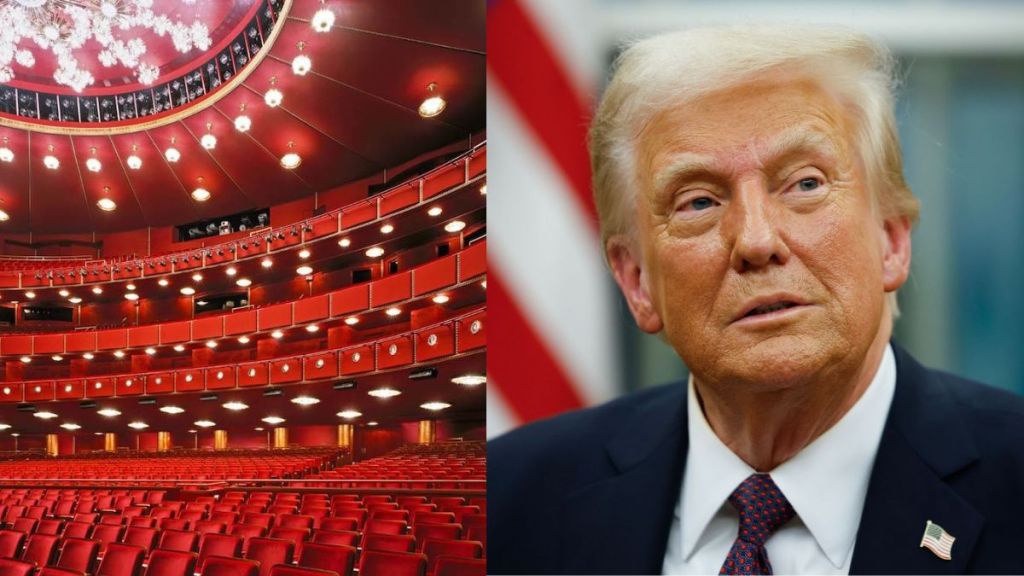Ticket sales at the Kennedy Center for the Performing Arts have reached their lowest levels in years following the February 2025 takeover by Donald Trump.
Since his appointment, the center’s three largest venues, the Opera House, Concert Hall, and Eisenhower Theater have seen a sharp decline in ticket sales, with nearly half of the available seats going unsold.
Data from The Washington Post reveals that, since early September, 43 per cent of tickets have remained unsold for the typical performance.
This is a significant drop compared to previous years, when 93 percent of tickets were sold or comped in fall 2024, and 80 percent in fall 2023.
The analysis shows that over the past month and a half, more than 50,000 tickets out of a total of 143,000 available have gone unfilled. While some tickets may have been given away for free.
Ticket revenue falls
The Kennedy Center has also seen a dramatic decline in revenue. Subscription sales have dropped from $4.4 million to a projected $2.7 million for the coming fiscal year, while single-ticket sales in April and May were nearly 50 percent lower than in the same period of 2024.
The sharpest downturn has been in theater performances, with some categories experiencing revenue drops exceeding 80 percent. The decline in ticket sales comes despite efforts to revamp the programming with a focus on populist events.
Richard Grenell, a former ambassador and Trump ally appointed by the president to oversee the center spoke to The Washington Post.
He has blamed the previous leadership for prioritising “woke” and niche programming that, in his view, did not bring in significant revenue.
Grenell stated the need for programming that “actually sells tickets,” aiming to refocus the Kennedy Center’s offerings to better align with a broader audience.
Cultural backlash and staff morale
The centre’s new direction has created backlash not only from patrons but also from within its staff. Critics point to a growing shift away from the Kennedy Center’s long-standing commitment to artistic diversity, with the centre now hosting more politically charged events.
These include talks by figures like Ben Carson, the former HUD Secretary, and Vivek Ramaswamy, a former presidential candidate. These events are framed around themes of “American values,” though many critics have described them as partisan propaganda aimed at promoting Trump-era policies and ideals.
For longtime patrons, the change in programming is a sharp departure from the Kennedy Center’s traditional focus on ballet, opera, jazz, and experimental theater.
Staff members have also expressed concerns about the center’s future, with some describing morale as “rock bottom” and fearing potential reprisals for voicing opposition to the new direction.
Established in 1971 as a living memorial to President John F. Kennedy, the Kennedy Center has long been a symbol of American artistic excellence and nonpartisan cultural celebration.
However, since Trump’s takeover, the institution has faced significant challenges in both its financial and cultural standing. Whether the Kennedy Center can recover and re-engage its audience remains uncertain as the effects of this leadership shift continue to unfold.


